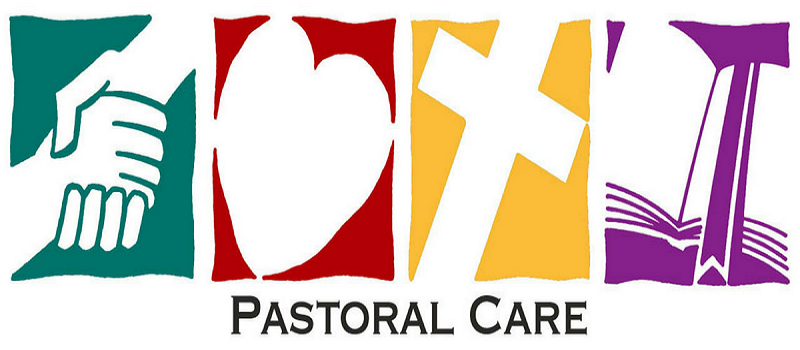![]()

ARTICLES IN THIS SERIES
1) The early church worked out their leadership based on the mission and method of Jesus.
2) The elders were the pastors in the early church.
3) The elders managed the tasks they were responsible for through delegation.
4) The elders delegated ministry to all disciples, also known as servants (diakonos, deacons).
5) The elders both provided and delegated the task of pastoral care.
6) All of the elders (leaders) and deacons (workers) were ordained (commissioned) with prayer and the laying on of hands.
5) The elders both provided and delegated the task of pastoral care.
The task of pastoral care is best understood in light of the meaning of ‘pastor’, which is ‘shepherd’. As we have seen the elders were the appointed shepherds in the church. In this sense, each elder was to be called ‘Pastor’, not just one of them. As shepherds, they were responsible for the sheep, and for everything relating to the sheep. This involved both exercising ‘shepherding care’ and delegating it. In the book of Acts, we see the Apostles/Elders visiting new believers as well as counseling, comforting, disciplining, healing and teaching existing believers. But we also see them delegating care to ‘servants’ in the church (Acts 6:1-7). There was no sharp separation between spiritual care and practical care; both were an important part of general pastoral care.
If we look at relevant passages that speak to the task of leaders as shepherds, we see their work includes:
- To provide them good food/pasture (Psalm 23:1-2, Ezekiel 34:13-14, John 21:15,17)
- To lead the sheep (Psalm 23:2-4, John 10:4)
- To take care of/look after the flock (Ezekiel 34:2-3, 12, John 21:16, 1 Peter 5:2)
- To not pursue selfish gain (Ezekiel 34:2-3, 1 Peter 5:2)
- To strengthen the weak, heal the sick, bind up the injured (Ezekiel 34:4)
- To bring back the strays, search for the lost (Ezekiel 34:4)
- To rule the sheep gently and compassionately (Ezekiel 34:4, 1 Peter 5:3)
- To protect the sheep (John 10:12-13, 28-29, Acts 20:29-31)
- To know the sheep, and be known by the sheep (John 10:14)
- To lay down their lives for the sheep (John 10:15)
- To be concerned for the other sheep (John 10:16)
- To keep watch over the sheep (Acts 20:28, 1 Peter 5:2)
- To be willing and eager to serve (1 Peter 5:2)
- To lead by example (1 Peter 5:3)
We need to see this shepherding care in the context of Jesus mission and method to reproduce disciples. Jesus did not simply expect the leaders to care for the sheep, but all the disciples were urged to “carry each other’s burdens” in order to fulfill the law of Christ (Galatians 6:2). All of the disciples were expected to encourage one another towards love and good deeds (Hebrews 10:24-25). All of the disciples were called to pray for one another, support one another, share with one another, restore one another. It was this “one another” atmosphere that made the church such a vibrant, inspiring place.
When a church first begins, it is understandable that the more mature disciples take the lead in this member care. But as the church grows, and as the disciples mature, the task of member care is another aspect of ministry that disciples need to be trained in to share.
It also makes sense that there are levels of intensity of pastoral care. In addition to general member care, there may be more involved care that the elders may need to address. Either one designated elder, or the team as a whole (depending on the circumstances) would deal with these matters. An example of this is seen in Matthew 18:15-17, where a matter of discipline is addressed first at the general membership level (one on one) before being raised to the leadership level. An additional level of care can be the use of professional counselors as well.
Ultimately the Elders are responsible for the care of the sheep. But as with other ministries, they can find creative and effective ways of delegating this care among the members. Some churches use small groups. Some churches use districts or faith families. Some churches use home visits. Some churches assign the care to the elders, while others appoint pastoral elders and/or pastoral care workers. Some churches look to the ‘ordained staff person’ (incorrectly labeled ‘pastor’). All of these are possible ways of providing care in the church; none of them are required or demanded. Each church Elder Team has to find what is best for them.
My point here is that neither Jesus nor the early church taught that one person (a ‘pastor’) was supposed to do all the pastoral care. Nor did they teach that the Elders had to do pastoral visits themselves. These are possible ways of doing it, but are not the only ‘biblical’ way of doing it. The Elders are responsible for caring for the sheep, but they may freely delegate this care and come up with an effective model to provide that care. The critical question for the Elders always is, “what is the best way to provide the best care for the sheep entrusted to our care?”
In my next post we look at what it means to be ‘ordained’ in the church.
ARTICLES IN THIS SERIES
1) The early church worked out their leadership based on the mission and method of Jesus.
2) The elders were the pastors in the early church.
3) The elders managed the tasks they were responsible for through delegation.
4) The elders delegated ministry to all disciples, also known as servants (diakonos, deacons).
5) The elders both provided and delegated the task of pastoral care.
6) All of the elders (leaders) and deacons (workers) were ordained (commissioned) with prayer and the laying on of hands.
